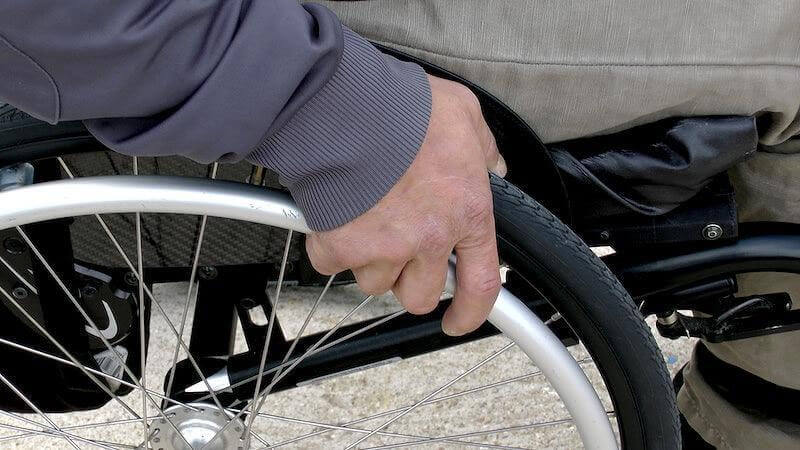For people whose initial application for disability benefits had been denied, there are still some steps they can take to fight the decision. The first of these steps is a process known as Security Disability Insurance (SSDI) Reconsideration Process.
After receiving a letter denying your initial application, you have up to 60 days to file a Request for Reconsideration. In the Reconsideration process, a different examiner will look at your case and all of the medical evidence you provided. However, the same guidelines followed are that which were present in the original evaluation of your application.
Keep reading below for more information.
What is SSDI’s Reconsideration Process?
If your initial Social Security Disability Insurance (SSDI) benefits claim is denied, the Social Security Disability’s (SSA) notice of decision will explain your appeal options. Reconsideration comes first in this process.
Your disability claim can be reconsidered if you want a new set of eyes to look at it after the initial decision is made. The reconsideration review will be conducted by the same Social Security disability office that processed your earlier claim, but a different examiner will be assigned to look into your case.
Reconsideration requests can be split into two categories. A request for medical reconsideration can be submitted if your Social Security disability claim was initially denied due to medical reasons.
A non-medical reconsideration is available if your initial application was denied due to factors other than your health. Reconsideration requests and responses can both be submitted electronically.
All of your supporting documentation from the initial application as well as any new evidence you provide will be reviewed by the SSA examiner during the reconsideration process. This reviewer is subjected to the same regulations as the one who initially looked at your application.
It is highly unlikely that you will be successful in your claim unless you can provide new evidence to back it up (such as updated medical records).

How to Pass the Reconsideration Stage?
Reconsideration denials are extremely common. Only 9.3% of reconsideration requests for disability benefits were granted by the SSA in 2017. You can increase your chances of success in a disability reconsideration hearing by taking some of the tips discussed in the section.
File Early
The appeal must be submitted in a timely manner. Reconsideration requests must be submitted to the Social Security Administration within 60 days of the denial letter’s date. An earlier claim filing time means a quicker decision time.
Submit the Right Forms
Second, you have to fill out the right forms. You’ll need to submit a Request for Reconsideration (Form SSA-561), a Reconsideration Disability Report (to provide additional evidence), and an Authorization to Disclose Information to the Social Security Administration.
Your request to reconsider your Social Security disability benefits may be denied if you do not submit these forms or if they are not submitted in a timely manner.
Submit the Right Evidence
The third step is to gather proof and present it. Insufficient evidence is a leading cause of Social Security Administration denials. Your application will be denied by the Disability Determination Services (DDS) office unless you submit additional evidence to back up your claim.
The kind of evidence you’ll need to demonstrate your disability depends on the reason your initial claim was turned down. If the Social Security claims examiner does not agree that your disability is severe, you will need to provide more medical evidence.
If you were initially denied for reasons other than medical reasons, you may need to submit additional evidence when applying for a second look.
Submit an RFC
You should have your doctor complete a Residual Functional Capacity (RFC) assessment for you. In contrast to your other medical records, this one will focus on how your illness or injury has hindered your capacity to undertake substantial gainful work (SGA).
Your disability benefits lawyer can recommend a doctor who is qualified to give you an RFC.
Review your initial application to see if you forgot to include any relevant details. If these issues are addressed, the chances of successfully appealing the original decision on reconsideration improve significantly.
In most cases, the time period allotted for the reconsideration of Social Security disability claims ranges from three to five months. You will be given the opportunity to file an appeal once you have been informed of the decision regarding your disability.
Consult an Attorney
Consulting a Social Security Disability attorney who has prior success with Social Security disability claims is a great way to increase your chances of success during the reconsideration process. They are aware of the SSA’s requirements for approval and will use this knowledge to build a compelling case for your benefits claim at the reconsideration stage.
What Happens If My Request for Reconsideration Is Denied?
In the event that your request for reconsideration is also denied, you may then proceed to request a hearing before an administrative law judge (ALJ). There are two ways to request an ALJ hearing: either submit an online HA-501 form or call the Social Security Administration.
You only have 60 days from the date you received notice of the reconsideration determination to file your appeal.
The Social Security Administration will hold a hearing after you have submitted your request. This hearing will probably take place within 75 miles of your residence. Social Security hearings can be attended in person, over video conference, over the phone, or anywhere else you prefer. If you have legal representation, your hearing could take place in the office of your lawyer.
The Social Security Administration will mail you a packet of materials detailing the ALJ hearing procedure. Make sure you fill out and submit all paperwork quickly to schedule your hearing.
This will speed up the scheduling of your hearing, allowing you to present your case to a judge sooner and receive a ruling.
You are required to send any new evidence that you wish to present, such as medical records, to the hearing officer in writing or via fax at least five business days before the hearing is scheduled to take place. Your attorney can help you submit evidence to the SSA in preparation for your hearing.
During the hearing, the ALJ will outline the issues at stake in your case. They will ask you and any witness testimony you brought (like your doctor or family members) questions at the hearing. The ALJ may also seek the testimony of a medical or vocational expert. Your lawyer will be able to present arguments and cross-examine witnesses on your behalf.
An administrative law judge hearing is less formal than a court case. However, it is still a court case. The hearing will be documented, and all participants will be required to take an oath or affirmation before testifying. The ALJ will hear all arguments and look at all evidence.
Following the hearing, the ALJ will render a decision and send a copy to you and your lawyer in writing. You may ask the Social Security Appeals Council to reconsider their decision if you don’t agree with it. Filing a civil lawsuit in a federal district court is the last resort for appealing a decision.
Should I Consult a Lawyer for the Reconsideration Process?

Having a qualified disability benefits attorney on your side from the time of application through any necessary federal court review can greatly improve your chances of successful claims. Due to the complexity of the Social Security disability process, it may be extremely challenging, if not impossible, to have your application approved at any stage.
A disability lawyer will be an aggressive advocate for you, beginning with a free review of your claim. They will walk you through the procedure and tell you what evidence you need to prove your case.
They’ll double-check that all the required paperwork and medical records are submitted in full and in the correct form before submitting an initial application. Additionally, they will assist you in locating doctors who are qualified to provide the necessary evidence for your claim.
If your application is turned down, your lawyer will compile new evidence and submit a formal appeal. They will investigate the reasons for a rejection and craft counterarguments accordingly. Throughout the appeal, they will consult with doctors and other specialists to strengthen your case.
Even though the application process for Social Security disability benefits might be challenging, an experienced disability benefits attorney can assist you in getting your benefits approved during the initial determination stage of the process.
Why Should You Submit a Reconsideration Request?

If your claim was rejected, you can ask that it be reviewed again by submitting a request for reconsideration. Your back pay could be affected if you fail to submit a request and then submit a new claim. If your request for reconsideration is upheld, you will be eligible for back pay from when you first filed your claim.
Apart from the five-month waiting period, you may be eligible for reimbursement for up to twelve months of expenses that you incurred prior to filing your claim.
You should include more details and evidence in support of your claim when submitting a request for reconsideration. The majority of claims are ultimately denied during the reconsideration process due to the lack of medical support or insufficient information.
If you are denied, however, you have the option of appealing to a judge in administrative court. If you do that, your claim has a much better chance of being accepted. The first step in getting your claim approved at the reconsideration level or later at a hearing is figuring out why it was initially denied.
Blue Book Requirements
Asking yourself some questions about why your claim was rejected will help you when you submit a request for reconsideration. Consider whether or not you fulfill the Blue Book’s requirements for a listing that applies to your condition.
Substantial Gainful Activity
Are you still employed? Your claim will be denied if you are engaging in Substantial Gainful Activity (SGA) and your income exceeds the threshold established by the Social Security Administration. You need to be able to prove that your disability will keep you from working for at least a year or that it will ultimately cause your death.
Past Work
Another thing to think about is whether you can still perform the same type of work. If you can, you do not meet the Social Security Administration’s (SSA) definition of disability. You must demonstrate that you are unable to work and unable to support yourself in order to have a valid claim.
The Social Security Administration will investigate your work capabilities to determine what, if any, work you are capable of doing. Your claim will be rejected if the evidence shows that you are capable of performing the same or similar work as in the past.
Why Was My Reconsideration Request Rejected?
The Social Security Administration (SSA) may reject a request for reconsideration for a variety of reasons. The lack of new evidence to overturn the decision is usually to blame. It is important to keep in mind that the disability examiner is subject to the same regulations during the reconsideration process that was applied during the initial application.
Your request for reconsideration will be rejected if you don’t present any supporting documentation or other information that meets the criteria for benefits under the law.
Working with an experienced attorney who specializes in disability benefits is your best bet if you want to increase the likelihood of having your reconsideration request approved.
How Does Requesting a Reconsideration Differ from an Appeal?
The first step in appealing a Social Security disability decision is to submit a request for reconsideration. A disability examiner will review your appeal application and supporting documentation just as they did when you first applied. At a later stage of the appeal, formal legal arguments and witness testimony may be heard.
You have the right to file an appeal with Social Security if you believe that you have been wrongfully denied disability benefits by the Social Security Administration. The appeal process begins with a request for reconsideration.
Conclusion
The chances of being approved after SSDI’s reconsideration process are really low unless you provide some new evidence that can considerably strengthen your claim. It can be helpful to consult an attorney who can guide you through all the steps necessary when filing a request for reconsideration.






4 Responses
they placed a hold on my disability
You will need to contact the Social Security Administration to find out why they discontinued your benefits.
Can your attorney submit the paperwork for reconsuderation?reconsideration?. Also if it’s beyond 60 days are you better off sending it in late or not at all?
Social Security outlines here what they usually consider to be “good causes,” which are a list of reasons that they would still accept an appeal after the deadline. We strongly recommend reading the page just to make sure there’s not a single reasonable explanation for the late submission. Then, contact SSA and verify with them that they would still accept it. At that point submit a reconsideration, even in the case that it’s beyond the 60-day deadline. Once you are able to confirm the appeal is accepted, you can work with an attorney.